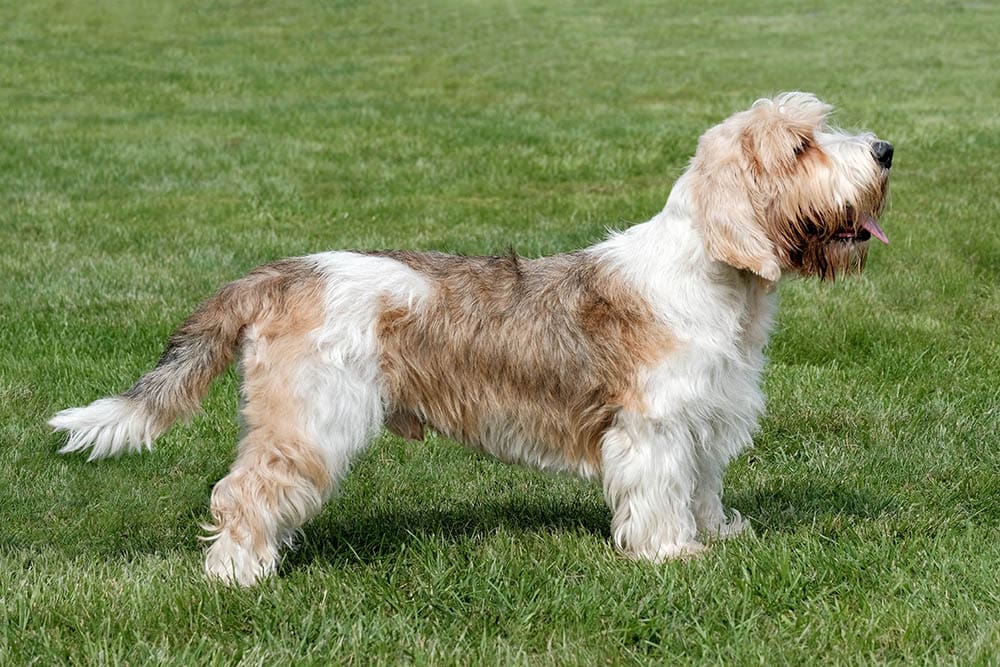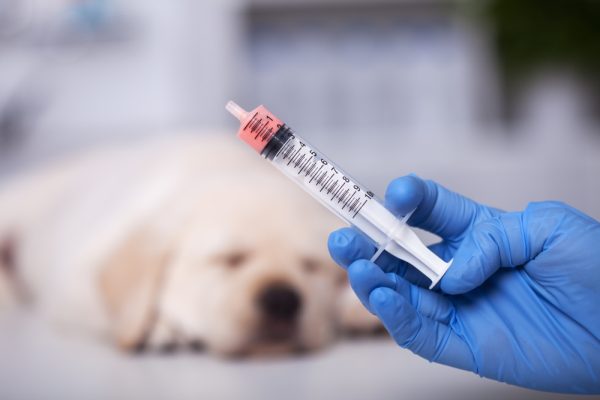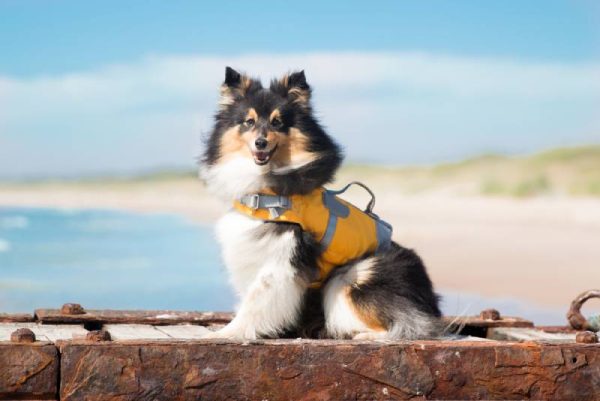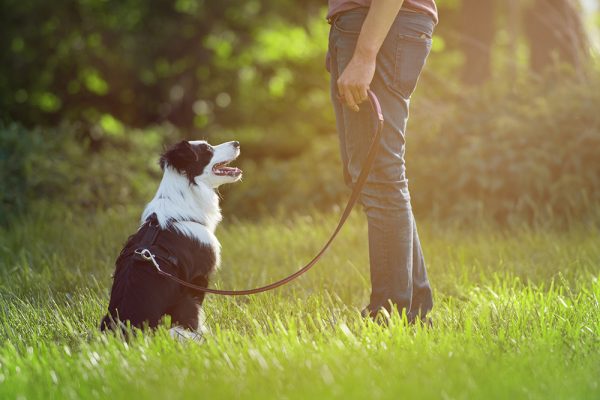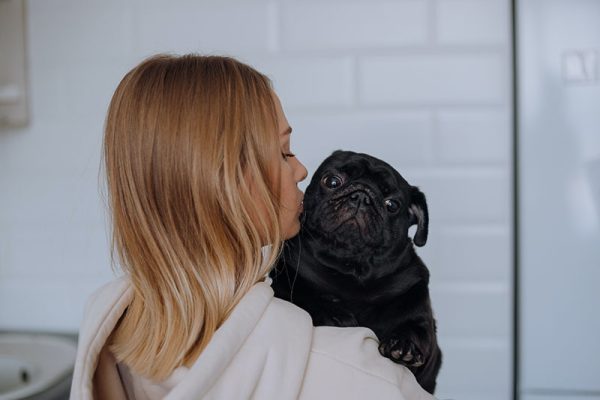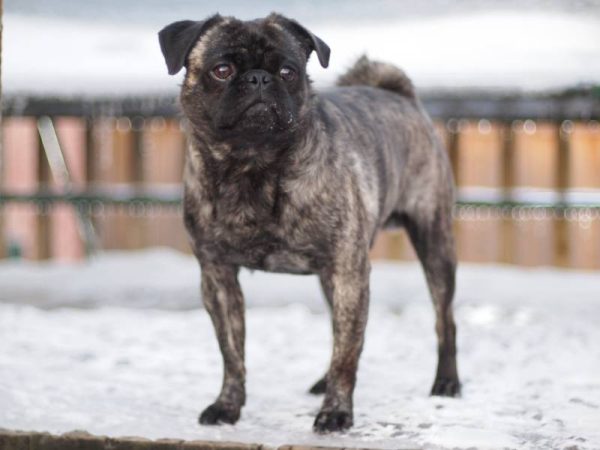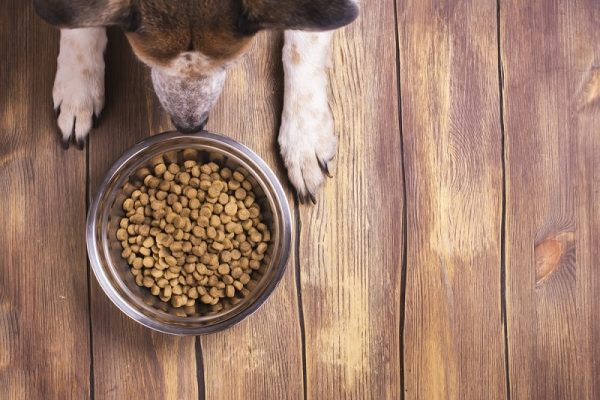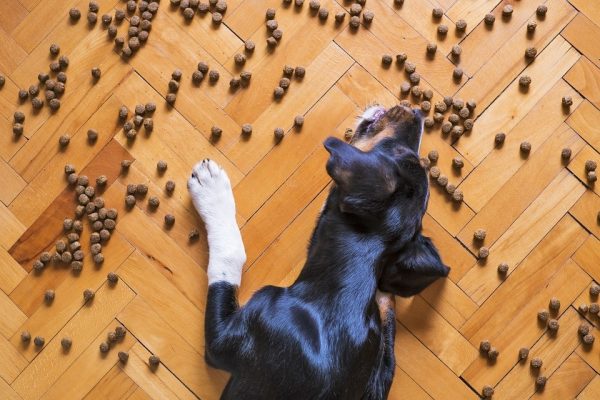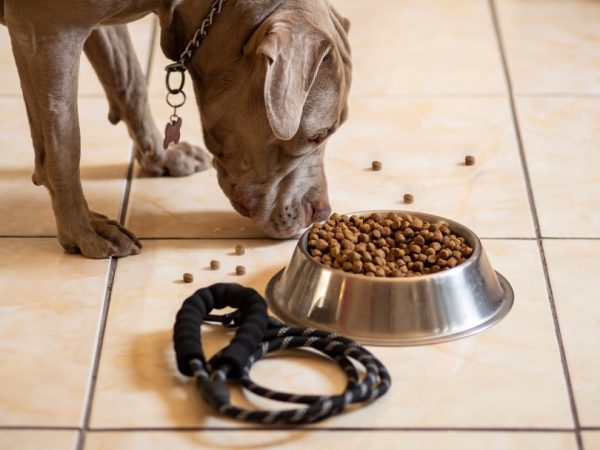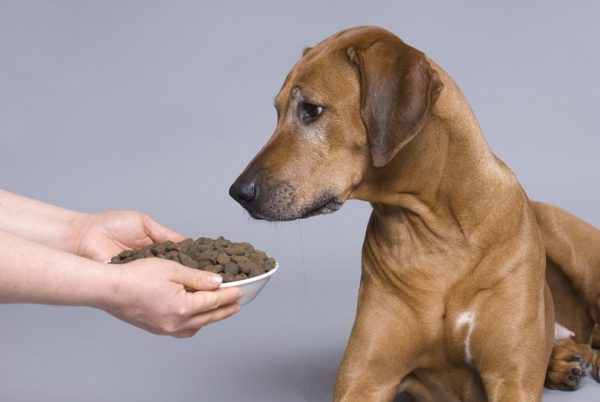In this article
View 8 More +The Petit Basset Griffon Vendéen, also known as the PBGV or Petit, is a small French hound dog breed known for its happy demeanor and durable constitution. These dogs were bred to work in packs and track hares—often through bramble-filled terrain.
As you might expect, these dogs act like, well, hounds. They’re very similar to Beagles or Basset Hounds, though they are a bit livelier than you might expect.
Breed Overview
Height
13–15 inches
Weight
25–40 pounds
Lifespan
14–16 years
Colors
White, black, tan, gray, lemon, sable, and combinations of these colors
Suitable for
Active families, those with children, apartment dwellers
Temperament
Curious, intelligent, stubborn
Petits are known for being good with children and other dogs, too. They do have a strong prey drive, so they tend to chase smaller animals, like cats. However, many also get along just fine with cats when well-socialized, so it depends largely on the dog.
While these dogs are intelligent, they aren’t the most trainable. Like most hounds, they are stubborn and often best for more experienced owners. They can have an independent streak. Still, these dogs can be great companions for the right family.
Petit Basset Griffon Vendeens Characteristics

Petit Basset Griffon Vendeen Puppies
Like most puppies, Basset Griffon puppies tend to be very energetic. They can also be pretty mouthy when they are chewing, so providing them with the proper chew toys is vital. You should start training them early and slowly. Puppies are often very open to training, but they can become more stubborn as they age. Prepare yourself accordingly and expect some backward momentum when they reach puberty. (They tend to go through a teen phase just like humans.)
Finding one of these dogs involves finding a breeder. They are not a common breed, so finding them at your local animal shelter isn’t likely to happen. Starting with your local breed club is often the best option, as they may know who has puppies available or is expecting litters.
Petit Basset Griffon Vendeen Origin & History
These dogs have a rich history. They are from the Vendee region of France, hence their name. Originally, they were bred to hunt small game, like rabbits, in the rough landscape. They’re related to other dogs in the region, but they are also much smaller. The “petit” in their name means “small” in French, signifying their smaller size.
While still prized hunting dogs in France, these dogs have gained international recognition as charming companions. Their happy personality and adaptability have made them popular family pets.
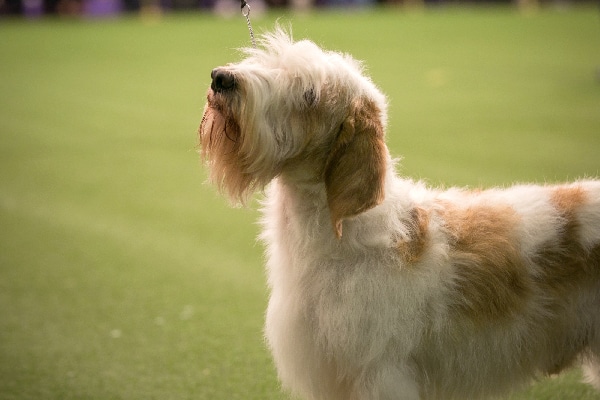

Temperament & Intelligence of the Petit Basset Griffon Vendeen 🧠
It’s important to realize that these dogs were originally designed to hunt. They’re a working breed, and they often act like it. That said, they are often lively and cheerful. They’re known for having a zest for life. Many owners love their happy personalities and often point to their liveliness as one of their best traits.
However, they can also be very stubborn. They tend to think for themselves, not just do whatever their owners say. Training requires plenty of consistency and patience.
Despite their independence, they are also very people-oriented. They bond deeply with their owners. They love to cuddle and receive all the attention they can, making them potentially loving companions. Their hunting heritage makes them naturally alert, so they can be a bit noisy. They are not guard dogs in the least. However, they will bark at you if something unusual happens around your house.
They are intelligent dogs capable of learning commands and tricks. However, their independent streak can come into play. Training sessions need to be engaging and rewarding to keep them motivated. They have very strong wills, and this often becomes obvious when you’re trying to train them.
Are These Dogs Good for Families? 🏡
These dogs can be good for families, but they aren’t perfect companion dogs.
They bond very deeply with their families and love attention, making them cuddly companions for just about anyone. They are also very playful, providing plenty of entertainment for adults and children alike. When properly socialized, they can also get along well with children. That said, because they are so small, supervision is vital. Otherwise, they can become accidentally injured.
These dogs aren’t the best for more laidback families, though. They’re active and require more exercise than you may think. Some families may struggle to keep up with their needs. Their independence can also make it challenging for them to train, requiring patience from their owners.
Does This Breed Get Along with Other Pets? 🐶 😽
The Petit Basset Griffon Vendeens can get along with other pets, but there are some things we need to point out.
They’re often just fine with other dogs, as they have a pack mentality. Of course, socialization and introductions are still important, but they tend to give most dogs the benefit of the doubt.
Cats and smaller animals can be more of a problem, though. They were bred for hunting small game, and they may see cats as prey. They’re very prone to chasing, which can be stressful for cats. Luckily, they are smaller, so serious injuries aren’t likely to occur, especially if the cat is larger.
There are some things you can do to improve compatibility, though. Introducing them to other pets at a very young age can help them learn that they’re friends, not food! Dogs that grow up with cats are often perfectly fine with them, even as they get older.
Even with socialization, though, it’s important to monitor interactions between your dog and smaller pets. They can quickly turn on a friendly cat and chase them, especially if the cat is in a playful mood. Sometimes, the cat and dog adapt and play nicely together, but this doesn’t always occur. Some cat breeds are more assertive and will stand their ground, especially if the dog is smaller.

Things to Know When Owning a Petit Basset Griffon Vendeen
Food & Diet Requirements 🦴
Petit Basset Griffon Vendeens do well on just about any balanced diet that meets their age and activity level. Choose a high-quality dog food formulated for small, active breeds. Look for a kibble that meets the standards set by the Association of American Feed Control Officials (AAFCO) to ensure it provides all the essential nutrients your dog needs.
Puppies and adults have different dietary needs. Therefore, it’s important to choose a food that’s designed for your dog’s life stage, whatever that happens to be. Puppies should stay on puppy food formulas until they stop growing.
These dogs, despite their active nature, are a small breed and prone to weight gain. They’re exceptionally food-driven, which is great for training but often means they eat too much! Be sure to measure your dog’s portions and consider treats when determining how much they need to eat. Treats are often necessary, especially when they are more stubborn. However, you should choose healthy treats and ensure that they don’t eat more than 10% of their daily calories in treats.
While possible, home-cooked diets require careful planning and consultation with a veterinarian to ensure they meet all your dog’s nutritional needs.
Exercise 🐕
Petit Bassets are highly active dogs and require a good amount of daily exercise to burn off their energy and prevent boredom-induced destructive behaviors. Aim for at least an hour of exercise each day, split into multiple sessions.
A longer walk in the morning and a long play session in the evening can work well for this breed. Here are some exercise activities we recommend for this breed, specifically:
- Brisk Walks: Daily walking is a great way to fulfill your dog’s exercise needs, but it does need to be a brisk Try to mix up where you walk to keep things interesting and allow for a slower period towards the middle for sniffing around.
- Running: Sometimes, these dogs can benefit from jogging with their humans. However, avoid running long distances until they’re around 18 months old to protect their developing joints.
- Playtime: These dogs love to play, but they are prone to wandering off. Ensure you play with them in a fenced-in area that they cannot escape. You cannot expect them to have a reliable recall due to their prey drive, so off-leash playing outside of a fence isn’t recommended.
- Dog Sports: Even if you don’t plan to compete with them, agility courses and nose work can be very fulfilling for these dogs.
Adjust the intensity and duration of the exercise for your dog’s age. Puppies often need shorter sessions but more sessions in one day. Don’t forget about mental stimulation, too. Interactive toys, training, and playing can all help your dog stay active and prevent boredom.
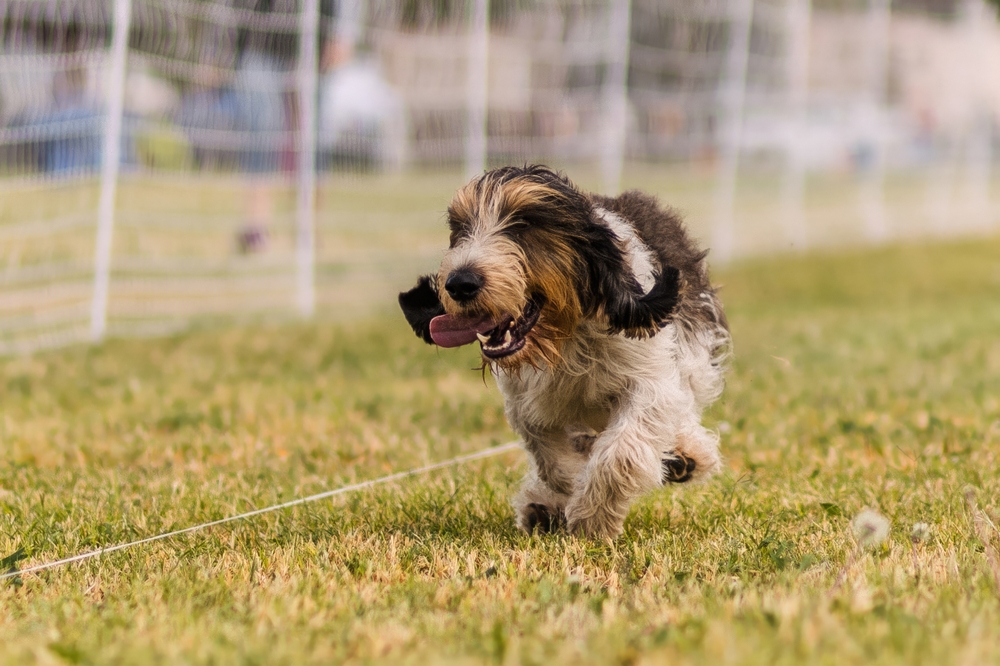
Training 🦮
Petit Basset Griffon Vendeens are intelligent. However, their independent streak can make training very challenging. They do best with positive reinforcement methods like praise and rewards. Avoid harsh punishments or yelling, as these can make your dog dislike training (and they may avoid training altogether).
Training takes plenty of patience and time, especially with these dogs. Remain consistent, even when your dog attempts to go their own way. Frequent training sessions are more efficient than longer ones. When possible, weave commands into daily life for the best results. Don’t forget to socialize your puppy from a young age. Exposing them to different people and places is vital, as it helps make them more confident. Otherwise, they may become fearful and potentially even aggressive.
We highly recommend enrolling your dog in puppy classes, preferably with other puppies. These classes provide considerable socialization and help teach your dog basic commands.
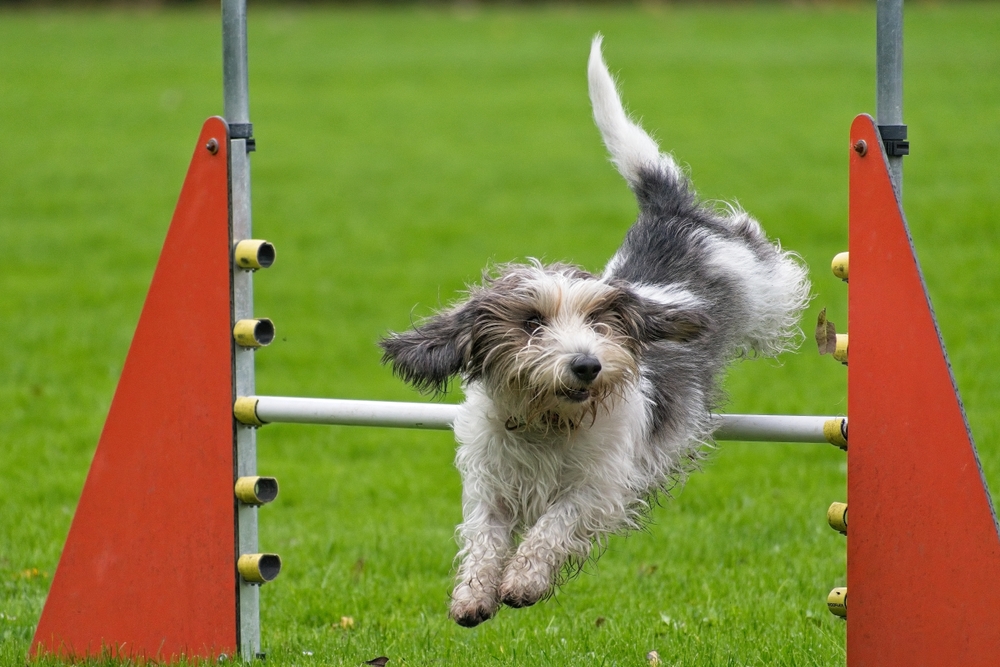
Grooming ✂️
These dogs have a wiry, waterproof coat that does a pretty good job of taking care of itself. However, they still require regular grooming to prevent matting and keep them looking their best. We recommend brushing them at least once a week, preferably more, to remove loose fur and prevent tangles.
Use a firm bristle brush or a stripping brush (if you know how to use it correctly) to remove loose hair from the undercoat. Always brush in the direction of hair growth, paying close attention to areas prone to matting, like behind the ears. A comb may be helpful to reach more narrow areas like under the legs.
Bathe them every few months when their coat gets a bit dirty, and use a gentle dog shampoo. While these dogs aren’t prone to skin issues, gentle shampoos are preferred to harsher products.
Keep an eye on your dog’s ears for infections, like redness, odor, and discharge. Clean their ears gently with water or a gentle cleaner if you notice any built-up dirt or ear wax. Only clean the parts of the ear you can see. Like all dogs, you’ll also need to trim their nails to prevent them from getting too long and uncomfortable. You can do this at home or have a groomer do it for you, depending on your preferences.
While it isn’t 100% necessary, we do recommend having a professional groomer hand-strip your dog’s coat every few months. This helps maintain the wiry texture of the coat while also softening it over time. However, it’s easy to damage your dog’s coat while stripping, so it is best to leave this job to a professional.
Health and Conditions ❤️
A sick hunting dog wouldn’t do any hunter any good. Therefore, these dogs are pretty healthy. Obvious genetic problems were kept out of the breed due to their working background. However, they are still prone to some health issues.
One of the most common is hip dysplasia, which occurs when the hip joint doesn’t form correctly. It causes arthritis-like symptoms but at a much earlier age. It is partially genetic and partially a result of the puppy’s environment. It isn’t curable, but medication can help manage the symptoms. They can also develop patellar luxation, a condition where the kneecap slips out of place. Symptoms can be very minor or very severe, causing lameness. In severe cases, surgery is often necessary.
They can also develop autoimmune hypothyroidism, which occurs when the thyroid is attacked by the dog’s immune system. This prevents the dog’s thyroid from producing the correct amount of hormones, leading to system-wide problems. Treatment usually involves lifelong thyroid hormone medications.
Like many dogs, they’re also prone to a range of eye problems. Cataracts, lens luxation, and glaucoma are all possible. Your vet should check your dog’s eyes regularly to pick up on these issues. While most of them are not curable, vision loss can sometimes be controlled with medication.
- Allergies
- Eye problems
- Hip dysplasia
- Patellar luxation
- Hypothyroidism
- Epilepsy

Male vs. Female
There are some very minor differences between male and female Petit Basset Griffon Vendeens. However, these differences are so small that they likely shouldn’t play a role in choosing a puppy.
There is very little size difference, for instance, unlike many larger breeds. Some anecdotal reports suggest that there may be temperament differences, but these aren’t scientifically proven. Most temperament differences likely come from a difference in reproductive hormones. If your dog is spayed or neutered, these hormones won’t be circulating in their system.

3 Little-Known Facts About the Petit Basset Griffon Vendeens
1. While they may look disheveled, their coat serves a purpose.
Their seemingly disheveled coat helps protect them from scratches and brambles, which would have been very common in their hunting days. Their undercoat also provides some extra insulation in both hot and cold weather, keeping them comfortable in all weather conditions.
2. They were originally bred for rabbits, but that isn’t all that they tracked.
They were even used to hunt small birds in their native France, though they are not nearly as popular as they once were.
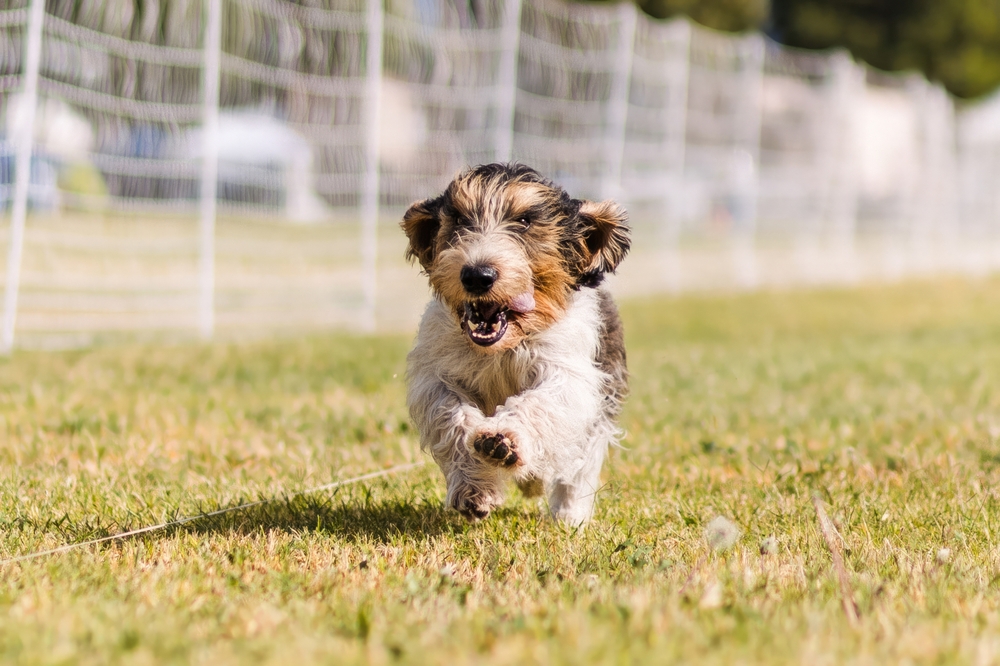
3. Despite their long history, they have a relatively new history in the United States.
They have a very long history in their native France, where they were developed. However, they only recently arrived in the United States. Their popularity hasn’t risen all that much, either.

Final Thoughts
The Petit Basset Griffon Vendeen is a rarer dog that’s often imported from France. While they are still somewhat popular in France, they’re pretty hard to find in the United States. Still, some US breeders do exist, though many puppies are still imported from France.
These dogs are pretty energetic despite their smaller size. They are also hounds, through and through. Expect them to be stubborn and pretty easygoing. In many cases, they may not listen to commands simply because they don’t see what the big deal is!
If you’re looking for an easygoing, happy breed, the Petit Basset Griffon Vendeen is great. Just be sure you can provide the needed training and have enough patience for it.
See also:
Featured Image Credit: Radomir Rezny, Shutterstock
